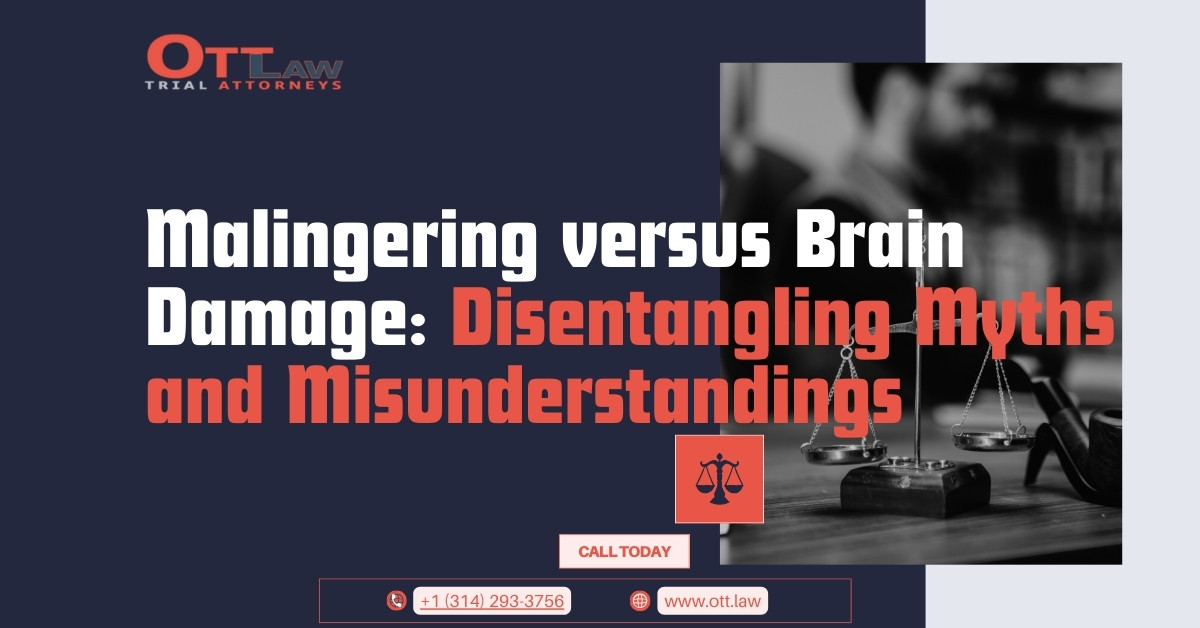Malingering, in the context of traumatic brain injury (TBI) and other medical conditions, refers to the exaggeration or feigning of symptoms for external gain, such as financial compensation or evading responsibility. Defense attorneys, insurance companies, and even some medical practitioners might attribute a plaintiff’s symptoms to malingering, especially in the absence of concrete medical evidence. However, separating genuine symptoms of a brain injury from potential malingering is intricate and requires a nuanced understanding.
Malingering and Brain Injury: Can Both Coexist?
Absolutely. Having a legitimate condition, such as a TBI, doesn’t preclude someone from exaggerating specific symptoms. However, it’s crucial to differentiate between the two to ensure the patient receives the right treatment and legal considerations.
- Cognitive Fluctuations: Damage, especially to the frontal lobes, can cause variations in cognitive performance. This can make a person appear inconsistent in their responses, which might be misinterpreted as malingering.
- Behavioral Aspects: Certain behavioral manifestations, such as lack of motivation, indifference towards test performance, or lack of cooperation, may stem from the TBI itself, especially if the injury affects areas governing motivation and behavior.
Misconceptions and Myths
Several myths surround malingering and brain injury, often fueled by the need to undermine legitimate claims. Some common misconceptions include:
- High Incidence of Malingering: Contrary to what some might believe, malingering is relatively rare in TBI cases. Many studies reaffirm this, emphasizing that most patients don’t fabricate or exaggerate their symptoms.
- Litigation and PCS: A common argument is that those in litigation are more likely to malinger. However, multiple studies have shown no direct link between litigation and post-concussive syndrome (PCS).
Legal Implications
The accusation of malingering has profound legal consequences:
- Compensation Claims: If a plaintiff is labeled a malingerer, it can significantly affect their compensation claim, potentially depriving them of funds needed for medical treatments and rehabilitation.
- Reputation Damage: Being branded as a malingerer can tarnish an individual’s reputation, leading to societal and familial mistrust.
Addressing the Issue
How can one address the malingering claim while advocating for a genuine brain injury?
- Expert Testimony: Employ neuropsychologists and medical practitioners experienced in TBI. Their expert testimonies can help differentiate genuine symptoms from possible malingering.
- Objective Evidence: While TBIs might not always show up in standard imaging tests, other objective measures like functional MRIs, PET scans, and advanced neuropsychological tests can provide crucial evidence.
- Behavioral Analysis: Behavioral and psychiatric evaluations can discern if erratic behavior is due to the brain injury or other factors.
Conclusion
Distinguishing between a genuine TBI and malingering is not always straightforward. While malingering does exist, it’s crucial not to paint all TBI sufferers with the same brush. Medical evaluations, expert testimonies, and a thorough understanding of the complexities of TBI can ensure that justice is meted out appropriately.

